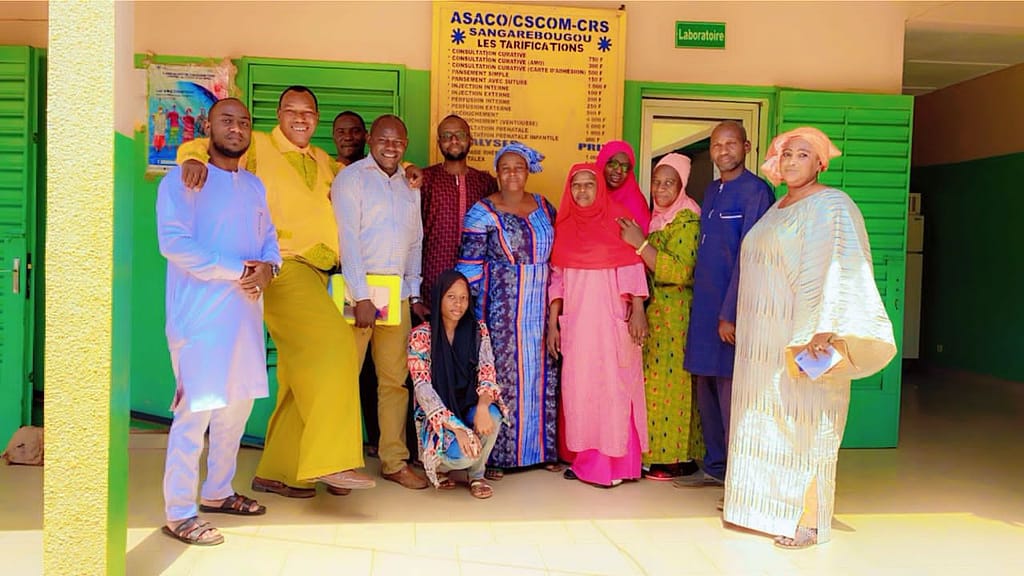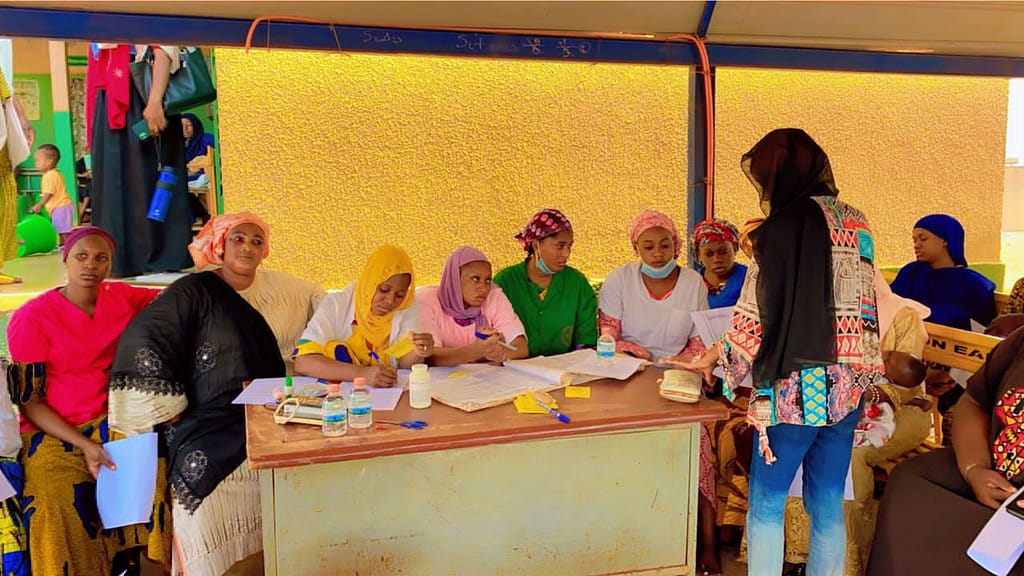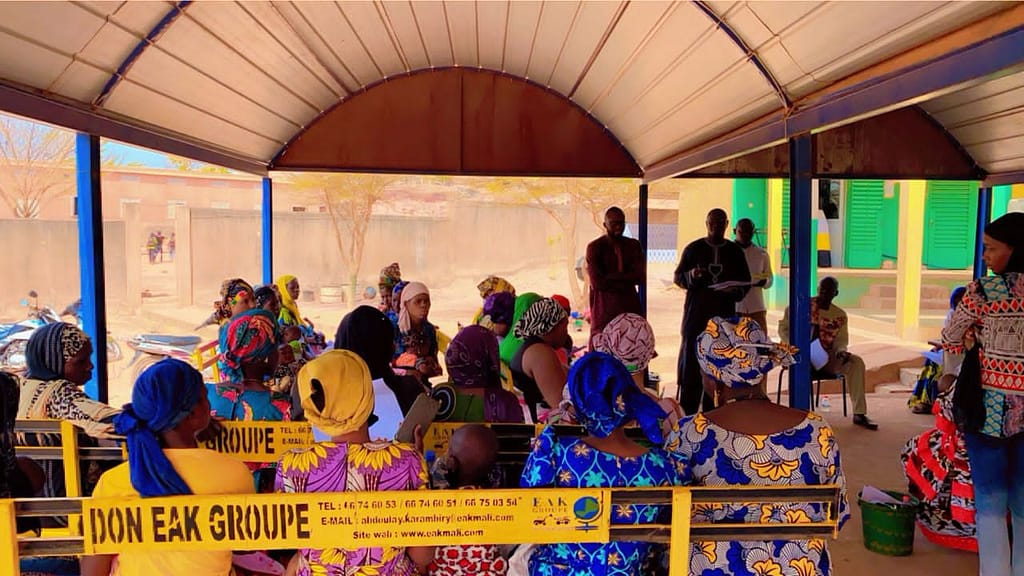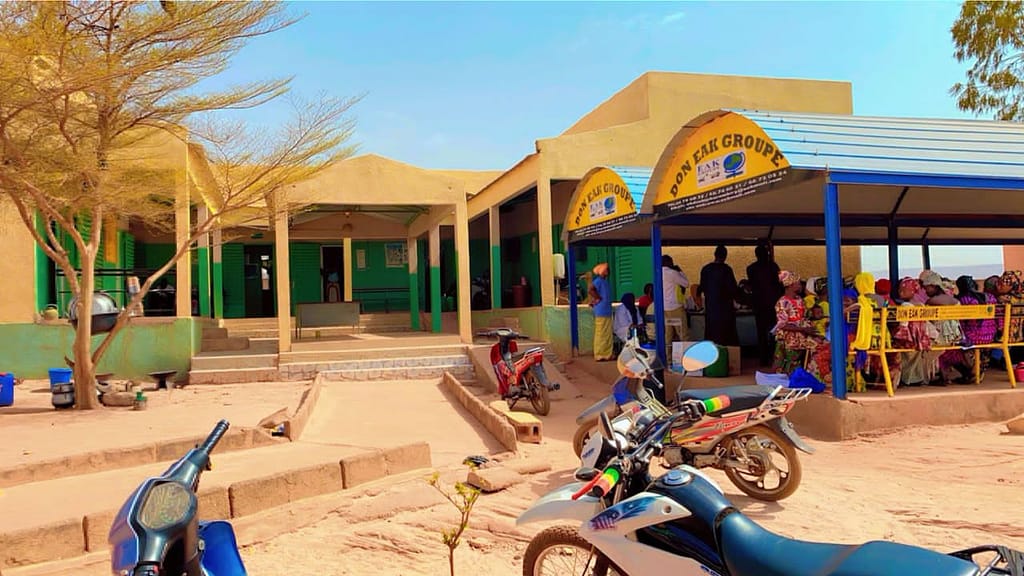Improving Antenatal Care Attendance in Mali
The Healthy Maman Project is an initiative aimed at enhancing antenatal care attendance among expectant mothers in Mali through innovative SMS-based interventions. This project recognises the critical importance of regular antenatal visits for the health of both mothers and their babies, and leverages mobile technology to bridge the gap in healthcare access and information. Maternal health remains a critical challenge in Mali, with low antenatal care (ANC) attendance contributing to poor maternal and neonatal outcomes. In 2022, haemorrhage was responsible for 42% of maternal deaths, while preeclampsia and eclampsia accounted for 33.8%. The audit rate for maternal deaths stood at 72.8%, with 36.53% classified as preventable. Similarly, 49.46% of peri-neonatal deaths were deemed preventable.
The current phase of the study (2024), funded by the National Institute for Health and Care Research (NIHR, UK) through the The Royal Society of Tropical Medicine and Hygiene (RSTMH, London) Early Career Researcher Grant 2023, is focused on documenting the feasibility of developing a scalable SMS-based intervention to improve ANC attendance in Mali. You can check out the project’s site on https://healthymaman.mkante.ml
Project goal
Looking ahead, our goal is to conduct a year-long pilot test in a Community Health Centre in Sangarebougou, followed by a district-wide deployment across the six (6) reference health centres in Bamako, with the aim of reaching at least 10,000 pregnant women. Securing further funding is essential, and we welcome contributions from individual donors to help make this vision a reality.
Overall long-term specific goals
- Increase Antenatal Care Attendance: by sending timely SMS reminders (call for those unable to read in their preferred language), we encourage expectant mothers to attend their scheduled antenatal appointments, ensuring they receive the necessary medical care.
- Provide Health education: Through mobile technology, we disseminate vital information on pregnancy, nutrition, and maternal health, empowering women with the knowledge they need for a healthy pregnancy.
- Strengthen support networks: The project facilitates connections between pregnant women and healthcare providers, creating a supportive community where mothers can seek advice and receive timely guidance.
January 2023 – April 2023:
- Proposal development and writing:
- The initial phase focused on developing and writing the proposal for the project, laying the groundwork for the research and securing potential funding.
December 2023:
- Small funding secured:
- Funding was secured from the Royal Society of Tropical Medicine and Hygiene (RSTMH) to conduct the documentation phase of the project (1 year).
January 2024:
- Project start:
- Official commencement of the project, marking the beginning of active research and planning.
January – March 2024:
- Literature review and local engagement:
- Extensive search and literature review conducted, alongside the write-up of findings.
- Meetings held with local health practitioners, resulting in an agreement to conduct the study at the Sangarebougou Community Health Center.
April 2024:
- Workshop with Women and specialists:
- A workshop organized with women and specialists, including gynecologists, to:
- Understand their perspectives and thoughts.
- Identify key features to be implemented in the intervention.
- Determine the type of content of the messages.
- Explore their preferred methods of receiving information and the frequency of communication.
- A workshop organized with women and specialists, including gynecologists, to:




April – May 2024:
- Literature review and draft preparation:
- Continued literature review focusing on existing mobile applications deployed in Low- and Middle-Income Countries (LMICs).
- Ongoing documentation with a draft submitted for publication.
- Data analysis
- Worshop data analysis
June – August 2024:
- Collaboration and prototype development:
- Collaboration with partners and stakeholders to develop a prototype of the SMS-based intervention, incorporating insights gained from the workshops and literature review.
 English
English Français
Français